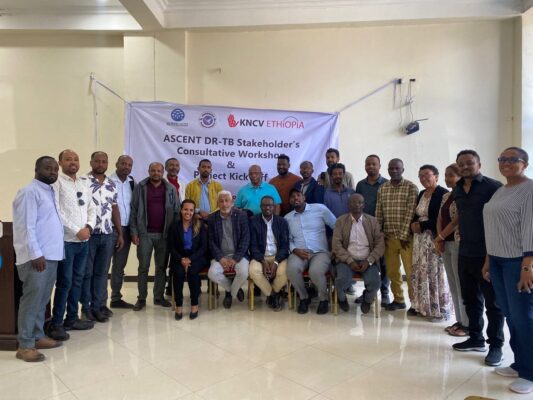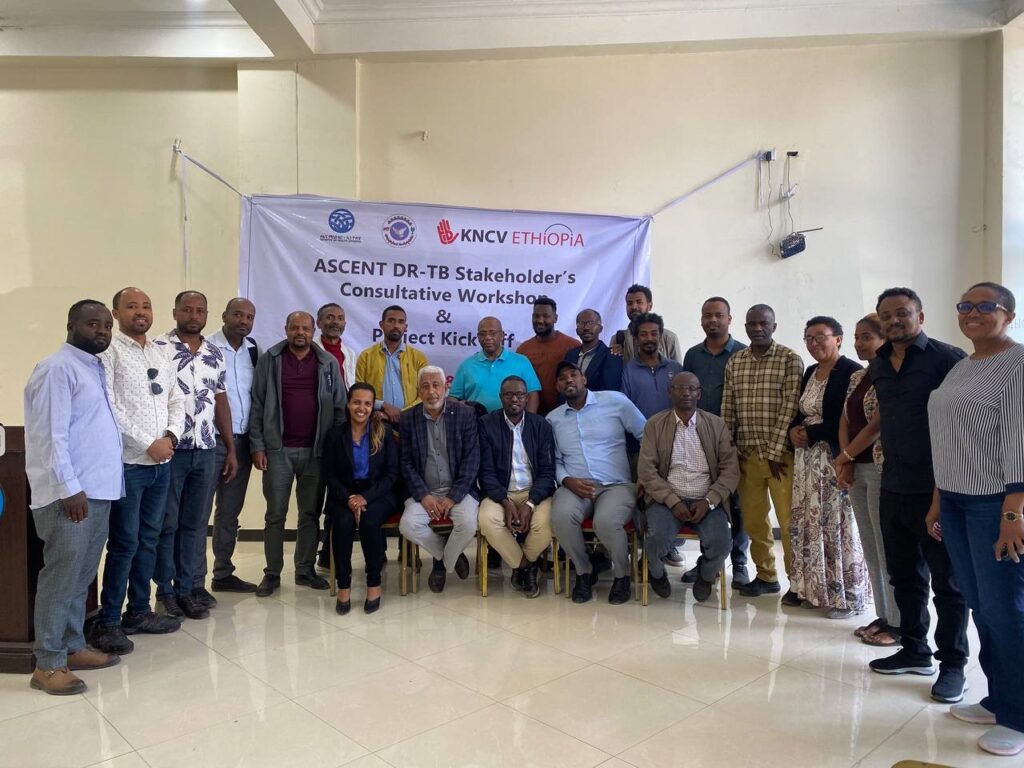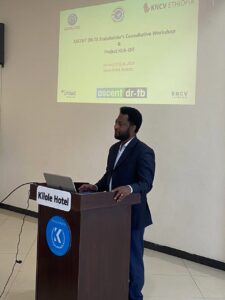The first stakeholder consultative workshop and kick-off meeting in Ethiopia was successfully conducted on January 26 and 24, 2025. This session was organized by KNCV Ethiopia, national entity, as part of the Unitaid funded project ASCENT DR-TB. The main objective of this workshop was to disseminate the findings of the drug resistant tuberculosis (DR-TB) management self-assessment and co-design a technical assistance roadmap with the National TB Program (NTP) and other stakeholders supporting tuberculosis (TB) services.
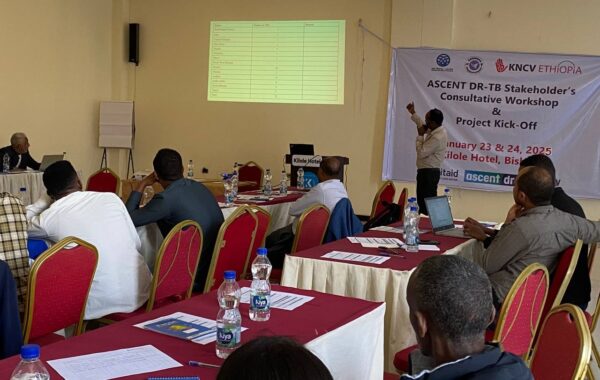
About the workshop
A total of 40 participants attended, including representatives from the Federal Ministry of Health (MOH) of Ethiopia, the National TB, Leprosy, and Other Lung Disease Desk (NTLLD) team, funders, partners, civil society organizations (CSOs), and representatives from the South Ethiopia region. Attendees included officials from the regional health bureau, bureau of finance, zonal health departments, and Treatment Initiation Centers (TICs). This 2-days workshop provided a platform for valuable input from interest-holders that will contribute to addressing key gaps in DR-TB service delivery.
Day 1
The meeting began with a welcoming remark by the Executive Director of KNCV Ethiopia, Dr. Ahmed Bedru, followed by Mr. Gemeda Bora, representative of the KNCV Ethiopia Board of Directors, and an opening speech by Mr. Taye Leta, MOH’s Disease Prevention and Control Lead Executive Officer and Head of the NTLLD.
Key presentations during day 1 included an overview of the ASCENT-DR TB project by Dr. Mansa Mbenga, Technical Lead from the KNCV Tuberculosis Foundation Global Office, followed by Mr. Teklu Molie, Senior Chief Public Health Professional and DR-TB Specialist and TB research coordinator at MOH Ethiopia, who discussed the status, successes, and challenges of PMDT/BPaL/M implementation in Ethiopia. Dr. Bedru, presented the self-assessment report, which formed the basis for further stakeholder discussions.
Day 2
On the second day, a kick-off workshop was conducted to initiate project implementation in South Ethiopia Regional State. The project aims to support five TICs in the region through a comprehensive technical assistance strategy. The focus areas include:
- strengthening active drug safety monitoring and management (aDSM),
- enhancing clinical and laboratory safety monitoring and support, and
- improving people-centered care and community DR-TB models.
Dr. Kalkidan Yae, PMDT Consultant for the project, provided an introduction to the ASCENT DR-TB project in the Ethiopian context, highlighting selected activities and target locations. Discussions with stakeholders and representatives from implementing sites—including South Ethiopia Regional Health Bureaus, Zonal Health Bureaus, and TICs—generated valuable feedback for strengthening project implementation.
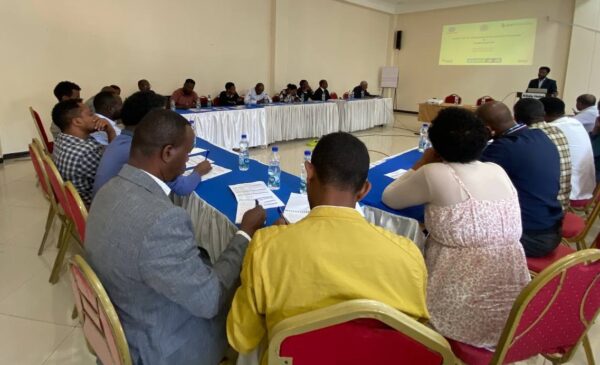
Concluding remarks
The workshop concluded successfully achieving its main objective: identifying critical technical assistance support areas together with CSOs and representatives of affected communities, including aDSM, clinical and laboratory safety monitoring, and people-centered care. The assessment findings revealed that the current support for these technical assistance packages by the NTP and partners remains minimal.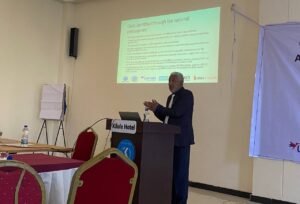
Through the selected comprehensive technical assistance package, the ASCENT-DR TB project aims to enhance DR-TB management implementation in the selected TICs, with lessons learned and best practices shared nationally to facilitate broader expansion and scale-up of the intervention package.
The workshop concluded with closing remarks by Mr. Dawit Kussia, Director of the Disease Prevention and Health Promotion Directorate of South Ethiopia Regional State.
Acknowledgements
Appreciation is extended to KNCV Ethiopia, the MOH/NTLLD program, particularly the PMDT team of experts actively involved in the self-assessment activity. Special thanks are also extended to the self-assessment team, stakeholders, and facility staff, including the 10 regional health offices that supported the facility assessment. Thanks for the technical and operational support provided by the KNCV Global Office and the ongoing guidance.
